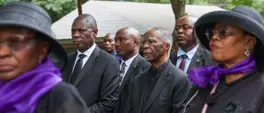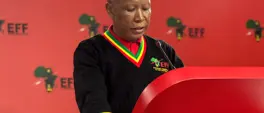D-Day for BELA Act consultations
Zoleka Godashe and Thabiso Goba
13 December 2024 | 4:14President Cyril Ramaphosa signed the piece of legislation into law in September, but gave parties three months to consult on the disputed clauses.
JOHANNESBURG - It’s D-day for parties at loggerheads to find middle ground on sections four and five of the Basic Education Amendment Laws (BELA) Act.
President Cyril Ramaphosa signed the piece of legislation into law in September, but gave parties three months to consult on the disputed clauses.
ALSO READ:
- 'BELA Act is targeting Afrikaans schools specifically' - AfriForum
- Ramaphosa: Solidarity agreement bears no influence on decision regarding commencement of BELA Act
However, despite the striking of the clock, interested parties still have reservations.
Among them is Solidarity, which has registered its concerns over the language policy.
Its operations head, Werner Human, said: "You shouldn’t try and achieve equality in brackets by taking away Afrikaans. That's the spirit of the Constitution as well. You should retain what you can regarding what has developed and where we are and then advance other languages."
Solidarity is one of three parties that signed the agreement before NEDLAC, which states that the expiration of the three-month period simply marks the end of the consultation process, and does not mark the start of the commencement for the implementation of the Act.
It said the president was still expected to consider the submissions made by parties.
This comes as the trade union accused African National Congress (ANC) Gauteng Chairperson, Panyaza Lesufi and Education MEC Matome Chiloane of using politics to fight the BELA battle.
Solidarity said the burden of proof lay with departments to show there was a transgression before an overhaul of the current system.
"Chiloane and Lesufi created a narrative to say that these schools that have Afrikaans instruction, they are actually hampering access to black learners and they express it in racial terms," said Human.
Lesufi said the president could give in to so-called "enemies" by not implementing the remaining two clauses of the BELA Act.
The two suspended clauses of the BELA Act transfer the power of determining school admission and language policies from the governing body to the provincial government.
Minority lobby groups like AfriForum and Solidarity said these clauses would signal the end of Afrikaans schools in the country.
Speaking at the South African Communist Party’s congress in Boksburg on Thursday, Lesufi stressed the BELA Act needed to be implemented without any further delays.
Get the whole picture 💡
Take a look at the topic timeline for all related articles.













